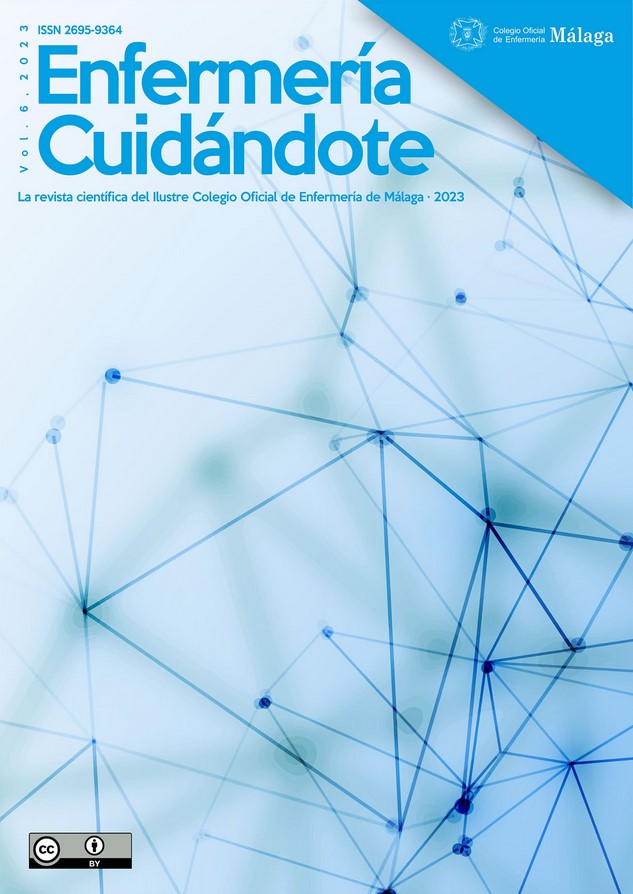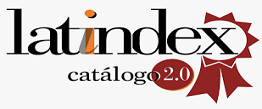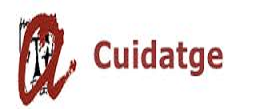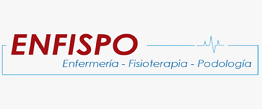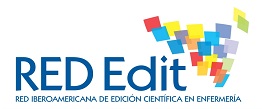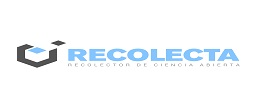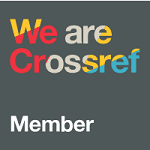Proposal for a school health education program: healthy eating at school
DOI:
https://doi.org/10.51326/ec.6.1133374Keywords:
Education, Healthy Diet, Motor Activity, Pediatric ObesityAbstract
Introduction: Childhood obesity is one of the most prevalent noncommunicable diseases in our country, and according to the 2019 ALADINO study, it affects 17.3% of Spanish children. The World Health Organization establishes that this problem is fundamentally due to a lifestyle based on a sedentary lifestyle and poor eating habits, which are in turn related to an increase in the consumption of ultra-processed foods. It is affirmed that interventions on nutrition and physical activity in the school environment imply improvements in the change of these habits in the child population, in addition to interventions on their closest environment, such as their relatives.
Objective: To develop an educational program that allows establishing a healthy and balanced diet in children in the 6th grade of primary school, through basic knowledge about nutrition.
Methodology: The target population will include both students enrolled in the 6th grade of primary school and their families and teaching staff of the center. A total of 6 training sessions, theoretical and practical, will be held on healthy eating and physical activity for students, and 1 session for families and teaching staff of the center.
Conclusions: With the application of the program, positive changes are expected to be achieved both in the improvement of health-related habits and in the acquisition of knowledge about healthy eating.
Downloads
References
World Health Organization. Ginebra: Organización Mundial de la Salud; 2022. Nutrition; [Fecha desconocida]; Disponible en: https://www.euro.who.int/en/health-topics/disease-prevention/nutrition/nutrition [Consultado 03-03-2022]
Gargantilla Madera P. Alimentación Sana: Todo lo Que hay Que saber sobre Una dieta saludable. Madrid: Edimat Libros; 2004.
Organización Mundial de la Salud. Ginebra: Organización Mundial de la Salud; 2021. Obesidad y sobrepeso; 9 de junio de 2021. Disponible en: https://www.who.int/es/news-room/fact-sheets/detail/obesity-and-overweight [Consultado 03-03-2022]
Styne DM, Arslanian SA, Connor EL, Farooqi IS, Murad MH, Silverstein JH, et al. Pediatric obesity—assessment, treatment, and prevention: An Endocrine Society clinical practice guideline. J Clin Endocrinol Metab. 2017;102(3):709–57. http://dx.doi.org/10.1210/jc.2016-2573
World Health Organization. Diet, nutrition and the prevention of chronic diseases. World Health Organ Tech Rep Ser. 2003;916:i–viii,1–149. Disponible en: https://www.fao.org/3/ac911e/ac911e00.pdf [Consultado 10-03-2022]
Alonso Alfonseca J, Caballero López G, Fernández Regatillo LM, García García V, Lama Herrera C, Muñoz Bellerín J, et al. Programa de promoción de la alimentación saludable en la escuela. Sevilla: Consejería de Salud; 2004. Disponible en: https://www.juntadeandalucia.es/export/drupaljda/salud_5af9586b56052_recursos_profesorado.pdf [Consultado 10-03-2022]
EFSA Panel on Nutrition, Novel Foods and Food Allergens (NDA), Turck D, Bohn T, Castenmiller J, de Henauw S, Hirsch-Ernst KI, et al. Tolerable upper intake level for dietary sugars. EFSA J. 2022;20(2):e07074. https://doi.org/10.2903/j.efsa.2022.7074
Salas Salvadó J, Maraver Eizaguirre F, Rodríguez-Mañas L, Saenz de Pipaón M, Vitoria Miñana I, Moreno Aznar L. The importance of water consumption in health and disease prevention: the current situation. Nutr Hosp. 2020;37/(5):1072-86. https://doi.org/10.20960/nh.03160
EFSA Panel on Dietetic Products, Nutrition, and Allergies (NDA). Scientific Opinion on Dietary reference values for water. EFSA J [Internet]. 2010;8(3):1459. https://doi.org/10.2903/j.efsa.2010.1459
Consejería de Desarrollo Educativo y Formación Profesional. CREA (Contenidos y Recursos Educativos de Andalucía). Programación de Bases del Entrenamiento Deportivo Ciclo Final LOE. Sevilla: Consejería de Desarrollo Educativo y Formación Profesional; Disponible en: https://www.juntadeandalucia.es/educacion/permanente/materiales/index.php?etapa=24&materia=322&unidad=4 [Consultado 28-04-2022]
Túnez Rodríguez L, Martínez de la Peña RA, López Túnez M, Granado Alba A, Sánchez Martín J, López Valverde MA, et al. Guía para disminuir el sedentarismo. Sevilla: Servicio Andaluz de Salud; 2017. Disponible en: https://www.sspa.juntadeandalucia.es/servicioandaluzdesalud/sites/default/files/sincfiles/wsas-media-pdf_publicacion/2021/guia_disminuir_sedenterismo.pdf [Consultado 28-04-2022]
Agencia Española de Seguridad Alimentaria y Nutrición. Estudio ALADINO 2019: Estudio sobre Alimentación, Actividad Física, Desarrollo Infantil y Obesidad en España 2019. Madrid: Agencia Española de Seguridad Alimentaria y Nutrición; 2020. Disponible en: https://www.aesan.gob.es/AECOSAN/web/nutricion/detalle/aladino_2019.htm [Consultado 04-03-2022]
Agencia Española de Seguridad Alimentaria y Nutrición. Tablas Resumen de los Estudios sobre prevalencia de sobrepeso y obesidad en España. Tablas. Madrid: Agencia Española de Seguridad Alimentaria y Nutrición. Disponible en: https://www.aesan.gob.es/AECOSAN/docs/documentos/nutricion/observatorio/prevalencia_sobrepeso.pdf [Consultado 04-03-2022]
World Health Organization. Growth reference data for 5-19 years. Geneva: World Health Organization; 2007 . Disponible en: https://www.who.int/growthref/en/ [Consultado 04-03-2022]
Must A, Dallal GE, Dietz WH. Reference data for obesity: 85th and 95th percentiles of body mass index (wt/ht2) and triceps skinfold thickness. Am J Clin Nutr. 1991;53(4):839–46. http://dx.doi.org/10.1093/ajcn/53.4.839
Servicio Andaluz de Salud. Informe anual 2020. Plan Integral de Obesidad Infantil de Andalucía. Sevilla: Consejería de Salud y Familias; 2020. Disponible en: https://www.juntadeandalucia.es/export/drupaljda/Informe_PIOBIN_2020.pdf [Consultado 04-05-2022]
Martí Del Moral A, Calvo C, Martínez A. Ultra-processed food consumption and obesity—a systematic review. Nutr Hosp. 2021;38(1):177-85. https://doi.org/10.20960/nh.03151
Livingston AS, Cudhea F, Wang L, Steele EM, Du M, Wang YC, et al. Effect of reducing ultraprocessed food consumption on obesity among US children and adolescents aged 7-18 years: evidence from a simulation model. BMJ Nutr Prev Health. 2021;4(2):397-404. https://doi.org/10.1136/bmjnph-2021-000303 [Consultado 03-05-2022]
Taillie LS, Busey E, Stoltze FM, Dillman Carpentier FR. Governmental policies to reduce unhealthy food marketing to children. Nutr Rev. 2019;77(11):787–816. https://doi.org/10.1093/nutrit/nuz021
Callender C, Velázquez D, Adera M, Dave JM, Olvera N, Chen T-A, et al. How minority parents could help children develop healthy eating behaviors: Parent and child perspectives. Nutrients. 2020;12(12):3879. https://doi.org/10.3390/nu12123879
Vandeweghe L, Moens E, Braet C, Van Lippevelde W, Vervoort L, Verbeken S. Perceived effective and feasible strategies to promote healthy eating in young children: focus groups with parents, family child care providers and daycare assistants. BMC Public Health. 2016;16(1):1045. https://doi.org/10.1186/s12889-016-3710-9
Scaglioni S, De Cosmi V, Ciappolino V, Parazzini F, Brambilla P, Agostoni C. Factors influencing children’s eating behaviours. Nutrients. 2018;10(6):706. https://doi.org/10.3390/nu10060706
Dabas A, Seth A. Prevention and management of childhood obesity. Indian J Pediatr. 2018;85(7):546–53. https://doi.org/10.1007/s12098-018-2636-x
Dudley DA, Cotton WG, Peralta LR. Teaching approaches and strategies that promote healthy eating in primary school children: a systematic review and meta-analysis. Int J Behav Nutr Phys Act. 2015;12(1). https://doi.org/10.1186/s12966-015-0182-8
Martin A, Booth JN, Laird Y, Sproule J, Reilly JJ, Saunders DH. Physical activity, diet and other behavioural interventions for improving cognition and school achievement in children and adolescents with obesity or overweight. Cochrane Database Syst Rev. 2018; 3(3):CD009728. https://doi.org/10.1002/14651858.CD009728.pub3
Ariza C, Sánchez-Martínez F, Serral G, Valmayor S, Juárez O, Pasarín MI, et al. The incidence of obesity, assessed as adiposity, is reduced after 1 year in primary schoolchildren by the POIBA intervention. J Nutr. 2019;149(2):258–69. https://doi.org/10.1093/jn/nxy259
Bustos N, Olivares S, Leyton B, Cano M, Albala C. Impact of a school-based intervention on nutritional education and physical activity in primary public schools in Chile (KIND) programme study protocol: cluster randomised controlled trial. BMC Public Health. 2016;16(1):1217. https://doi.org/10.1186/s12889-016-3878-z
Moreno Villares JM, Galiano Segovia MJ. Alimentación del niño preescolar, escolar y del adolescente. Pediatr Integral. 2015;XIX(4):268-76. Disponible en: https://www.pediatriaintegral.es/wp-content/uploads/2015/xix04/05/n4-268-276_Jose%20Moreno.pdf [Consultado 18-05-2022]
Mancipe Navarrete JA, García Villamil SS, Correa Bautista JE, Meneses-Echávez JF, González-Jiménez E, Schmidt Rio-Valle J. Effectiveness of educational interventions conducted in latin america for the prevention of overweight and obesity in scholar children from 6-17 years old; a systematic review. Nutr Hosp. 2014;31(1):102-14. https://doi.org/10.3305/nh.2015.31.1.8146
Wu Y, Lau BD, Bleich S, Cheskin L, Boult C, Segal JB, et al. Future research needs for childhood obesity prevention programs: Future Research Needs From Comparative Effectiveness Review No. 115. Rockville (MD): Agency for Healthcare Research and Quality (US); 2013. Disponible en: https://www.ncbi.nlm.nih.gov/books/NBK154598/ [Consultado 18-05-2022]
Pedrosa León Á, Mateu-Capell M. Programa de enfermería escolar para disminuir y prevenir la obesidad infantil [Trabajo de Fin de Grado]. Vic: Universitat Central de Catalunya; 2019. Disponible en: http://repositori.umanresa.cat/bitstream/handle/1/425/2019-5-17_Mem%c3%b2ria-Africa_Pedrosa_Leon.pdf?sequence=1&isAllow [Consultado 11-05-2022]
PR Newswire. La FDA ayuda a los niños a leer las etiquetas]. New Hampshire: Food and Drug Administration; 1 de septiembre de 2016. Disponible en: https://www.multivu.com/players/Spanish/7770751-fda-national-childhood-obesity-month/ [Consultado 21-05-2022]
Don Folio. Córdoba: Don Folio; [Fecha desconocida]. Disponible en: https://copisteriaonline.donfolio.com/copisteria-online/ [Consultado 21-05-2022]
Mercadona. Tavernes Blanques: Mercadona; [Fecha desconocida]. Disponible en: https://www.mercadona.es/ [Consultado 21-05-2022]

